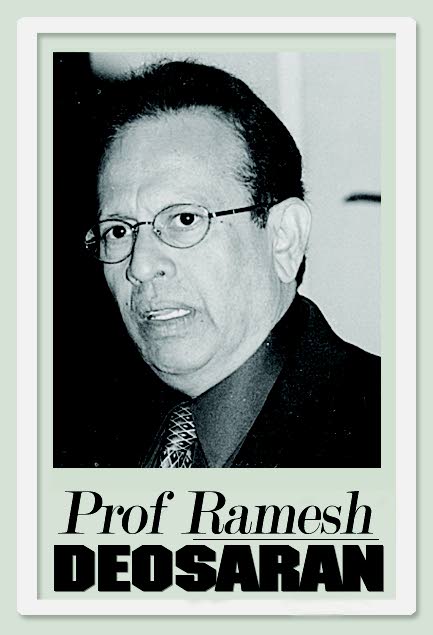Misogynism and politics

Misogynism. This is described as “the practice of disliking, despising or being strongly prejudiced against women.” In this social media-driven era of individual rights and equal treatment, misogynism, where found, is bound to come in for some serious licks. It gets worse when it gets linked to race and politics.
Misogynism violates today’s zeitgeist; it goes against today’s mood of anti-racism and anti-sexism. Sensitivities to both are now quite heightened - whether about lifting a Hindu lady’s sari, derogating part of your population as a “self-serving one per cent,” or describing a leader of African descent as “an oreo acting in the interest of the ‘one per cent.’”
No wonder then, this big anti-sexism story here in the Toronto Star: “Racist misogynists do not deserve a platform anywhere,” (September 9). The authors from the Canadian Anti-Hate Network, Amira Elgawaby and Bernie Farber, referred to “racist misogynists” like President Donald Trump’s former advisor, Stephen Bannon. Bannon does not deserve speaking time anywhere, they argue. And as I saw on TV, the controversy continued.
Bannon was scheduled to take part next month, before a Toronto audience of 3,000, at the prestigious annual Munk Debates on the topic “The trend in western politics is more towards populism than liberalism.” As chairman of his right-wing Breitbart News, Bannon’s views “on women, immigrants and the LGBTQ communities are well known for being hateful,” the two anti-hate crusaders added. They cite as supporting reference, the reputable Southern Law Poverty Centre’s view on Bannon’s outfit as “a set of far-right ideologies, groups and individuals whose core belief is that ‘white identity’ is under attack by multicultural force using ‘political correctness.”
This top-line public controversy helps illustrate the never-ending tensions over sexism and racism in a free society - with vital implications for votes, democracy’s bottom line. Politicians, beware.
Many free speech advocates quickly objected to the banning of Bannon, saying that all views in a democracy – populist or liberal – have a right to be heard at a public forum. However, the sponsors took Bannon off the panel.
Such contentions are world-wide, some resulting in violence and genocides, some in legalised social exclusion, others in subtle discrimination – from the Middle East to Myanmar. Anti-sex and anti-racism movements have become abundant in Canada, the US and across Europe, campuses especially. In Quebec, there is a political struggle over the status of the English language. Peaceful co-existence does not necessarily mean no prejudice or discrimination. It leaks in many forms.
On the larger front, while the developed world preached globalisation, immigration and refugee seekers now face increasing blockage. As pressures against sexism and racism now flow from one corner, so too anti-immigrant, anti-Muslim, anti-LGBTQ movements are not only rising but threatening established political order. Such tensions, as they have in the past, will rise and fall, but never really end. They will have to be managed, partly because while discrimination can be seen, prejudice remains buried, vulnerable to exploitation. This was Donald Trump’s success.
In our country, we have our share of racial controversies. And believe me, such controversies will never end here or in other multi-ethnic countries. In fact, there is no society in the world without a touch of multiculturalism and its controversies. It is only a matter of degree and how many. I affirm this because we believe that one day, like Martin Luther King Jr, racism, prejudice and discrimination will end. It will not, no matter how much constitution reform or equal opportunity laws are created as barriers.
Like upper class, middle class and lower class – however defined – ethnic prejudice will survive in some degree. The undying psychological quest of people is not only to be different, but also to be better. We cannot ignore history – before and after the two world wars (1914-1918, 1939-1945). It was ethnic prejudice and accompanying tribalisms which triggered such wars, costing the lives of innocent millions. The “superior race” ideology exposed the worst of mankind. We “better than them” is of softer but still a poisoned attitude. There has been a softening of misogynism in recent years but will it ever end? Will sexism and racism ever end? Sounds pessimistic? To conquer such perversities requires, as a start, a humane environment and deep spiritual introspection. Tough challenge.

Comments
"Misogynism and politics"